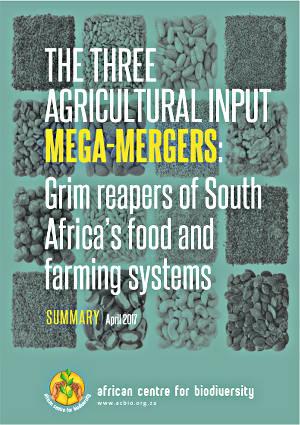Latest Resources

27 November 2020
Introducing ACB’s multiple shocks in Africa series: ecological crisis, capitalist nature & d...
Veuillez cliquer ici pour le français Por favor clique aqui para Português Por favor, haga clic aquí para el español Tafadhali bonyeza hapa kwa Kiswahili The COVID-19 pandemic and subsequent crises, as a result of lockdowns, have exposed the fractures of human societies’ relationship with nature. In a world dominated by capitalist globalisation, these crises […]

19 October 2020
We are nature! Human rights, environmental law, and the illusion of separation
Por favor, haga clic aquí para el español Passer à la version française Clique aqui para a versão portuguesa Food connects us with nature. There is no other place where our intrinsic relationship with the living world is as clear. When we eat, our body transforms nature into people. Moreover, the production of nutritious food […]

30 September 2020
Nature-based solutions or nature-based seductions?
Clique aqui para a versão portuguesa Por favor, haga clic aquí para el español Unpacking the dangerous myth that nature-based solutions can sufficiently mitigate climate change The Third World Network and the African Centre for Biodiversity are pleased to share with you a new briefing paper: Nature-based solutions or nature-based seductions? Unpacking the dangerous myth […]

21 October 2019
Transforming the farm input support programme (FISP) to diversified agroecology practices in Mong...
This fourth briefing in a series of four highlights key issues raised at a farmer exchange and learning event held in August 2019 in Mongu District, Western Province, Zambia. Namushakende Farming Institute (NFI) hosted the field visit and dialogue together with the Zambia Alliance for Agroecology and Biodiversity (ZAAB), Kasisi Agricultural Training Centre (KATC) and […]

14 October 2019
Transforming the FISP to diversified agroecology practices, Pemba District, Southern Province, Za...
The third in the series of four farmer exchange meetings in Zambia took place in July, in Pemba District, Southern Province. Through a partnership between the African Centre for Biodiversity (ACB) and the Zambia Alliance for Agroecology and Biodiversity (ZAAB), Kanchomba Farming Institute (KFI) hosted the field visit and dialogue, together with Kasisi Agricultural Training […]

2 August 2019
Transforming the Farm Input Support Programme (FISP) to diversified agroecology practices in Shib...
This is a second briefing paper to come out of farmer exchange events held in Zambia in May. The first exchange took place in Kalulushi District, Copperbelt Province, and you can find that briefing paper here. Then a second exchange was convened in Shibuyunji District, Central Province, where the objective was to continue sharing ideas […]

23 July 2019
Moving from the Farm Input Subsidy Programme (FISP) to Agroecology in the Kalulushi District, Cop...
This briefing highlights key issues raised at a farmer exchange and learning event held in May 2019 in Kalulushi District, in the Copperbelt Province of Zambia. The overall objective of the meeting was to share and exchange ideas on transitioning to a smallholder support system for diversified agroecological farming. Participants discussed the roles that farmers, […]

5 July 2017
Decolonising Food Systems and Sowing Seeds of Resistance
The briefing paper challenges us to reclaim our connection to seed, food and each other and to engage in new food politics. Download pdf.

11 April 2017
Mega-mergers: 3 giant corporations controlling South Africa’s food and farming systems
This briefing deals with the three mega mergers taking place in the agriculture sector as Dow Chemical and DuPont are set to merge, China National Chemical Corporation (ChemChina) is to acquire Syngenta and Bayer is to acquire Monsanto. The proposed Bayer-Monsanto merger will give control of almost 30% of the world’s commercial seed market and […]

13 March 2015
Agroecology in South Africa: policy and practice
The African Centre for Biosafety has prepared a discussion document on agroecology-related policy in South Africa, and included a few examples of agroecology practices in South Africa. We trust that this document will contribute to the recently launched Food Sovereignty Campaign and the progress of agroecology practice being made on the ground in South Africa.
